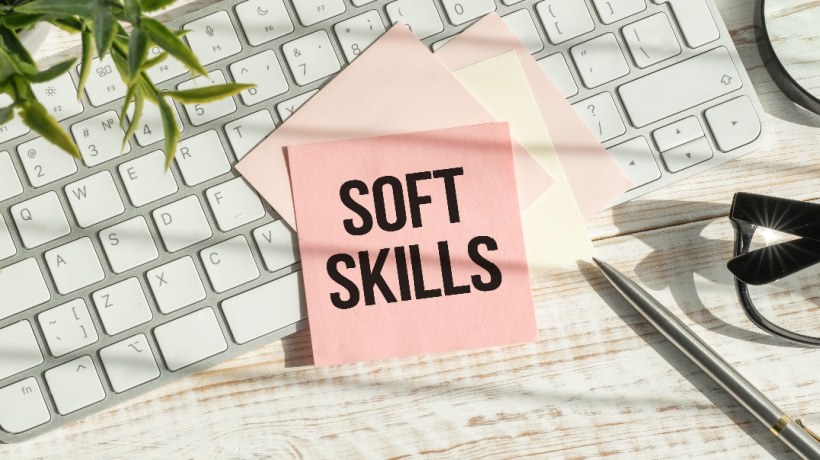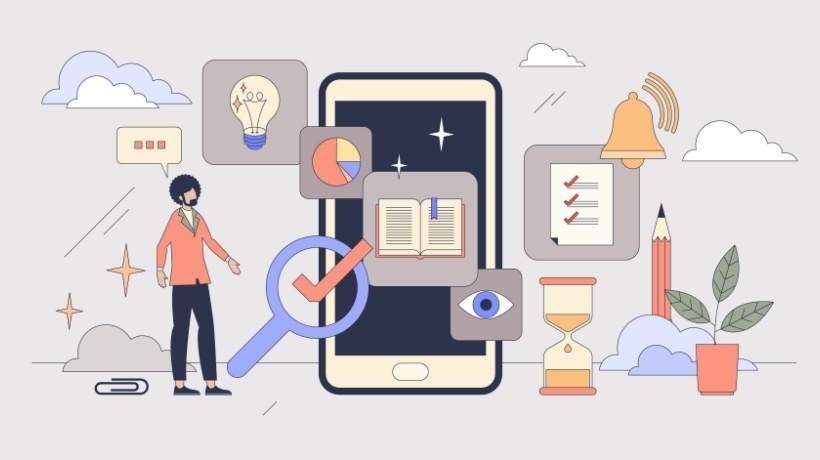How To Future-Proof Your Career
The workplace of tomorrow is not going to be anything like what we've experienced in the past. Thanks to advancements in technology, automation, and Artificial Intelligence, the way we work is evolving at a lightning-fast pace. This affects employees' skill sets, too. There aren't specific skills that will guarantee you a job anymore because many traditional roles are automated and new positions emerge, requiring new competencies. No industry is left unaffected, so you might need to step up your training game. By 2030, it's estimated that technology will have transformed 1 billion jobs worldwide. This doesn't mean that machines will replace humans. Instead, it's more like technology augmenting our capabilities and automating processes. So read on to find out how you can prepare for the future workplace and secure a successful career.
10 Top Skills To Stay Ahead In The Future Workplace
1. Adaptability And Resilience
To thrive in an evolving workplace, you need to be aware of the ever-changing nature of job responsibilities in the future. The key is to be adaptable. This means staying curious and opening up to learning new things. Don't stay in your comfort zone and expect your company to take you by the hand and teach you new things; you need to be proactive in seeking opportunities to expand your knowledge. Additionally, resilience will help you stay unbothered by the surrounding changes, letting you remain grounded. Rapid changes are overwhelming, but they're part of life, so try embracing them with a positive attitude. Try viewing them as opportunities to learn. You can build resilience by creating a supportive network of colleagues, seasoned employees, and even friends who can encourage you to keep going despite bad times.
To achieve both adaptability and resilience, though, you need to understand that lifelong learning is your number one tool. Upskilling will help you enhance your current skills and learn new ones, and you can do it through various forms, like online courses, workshops, or mentorship programs. The more you invest in yourself, the more desirable you become to employers while also being prepared for anything that comes your way.
2. Digital Literacy
From small businesses to multinational corporations, every industry now relies on digital tools and platforms to automate its processes. They leverage software to communicate with customers, reach wider audiences in their marketing campaigns, and facilitate the work of many departments. Consequently, digital literacy has become one of the most sought-after skills among employers. This skill is not just about knowing how to send an email or use social media. It's about understanding how technology works. For example, digitally literate employees encounter fewer problems when using new software or technologies and usually adapt much easier to new tools for their tasks. After all, every modern office uses digital platforms. Whether it's for project management, creating presentations, video conferencing, or using cloud documents, employees need to be proficient in those tools.
So, always seek out learning opportunities regarding tech trends. You don't have to be an expert, of course; having awareness is more than enough for a start. You need to recognize new technologies and know how they can impact your industry and your job. This way, you'll be able to make informed decisions and suggest innovative solutions that will differentiate you from your colleagues.
3. Creativity And Innovation
A culture of innovation in the workplace fosters and celebrates creativity. A company that's all about creation encourages every team member to contribute their unique ideas and perspectives without fear of judgment. If you have a safe space to express your thoughts, you're in for discovering new products, improving services, and finding new ways to improve your processes. So, if you want to unlock your full potential, consider working for companies that promote creativity and value their employees' voices, despite their position in the hierarchy. You need to be able to take risks, though, because that indicates your willingness to try new things, even if you fail. In fact, you should develop a mindset where failure is accepted as a lesson that will take you closer to groundbreaking solutions.
To enhance your creativity and innovation, you need to develop critical thinking skills. Those will help you analyze information objectively and make informed decisions. Similarly, creative thinking will free you from traditional thinking and allow you to create new ideas. For instance, you will start connecting seemingly unrelated concepts to find solutions for any issue. Those two skills combined will make you a desirable candidate for any position.
4. Emotional Intelligence
Emotional intelligence refers to our ability to understand, manage, and express emotions, both in ourselves and others. Emotions are an important part of us, and in a workplace where we communicate with colleagues and customers, emotional intelligence can make a huge difference. It helps you build deep connections with others, empathize with their feelings, and form strong relationships. But how can you nurture emotional intelligence? It's all about empathy, communication, and collaboration skills. Empathy is what helps you understand and validate other people's emotions; it's more like putting yourself in someone else's shoes. Communication is also needed since it's easy for remote teams to struggle on that part through digital channels. However, if you can express your thoughts in words and actively listen, you can improve your cooperation with others significantly. This applies to collaboration skills as well, since they help you appreciate other people's perspectives, thus leading to effective communication, even remotely.
Those skills will not only help you navigate the digital world but will also give you the chance to develop leadership capabilities. Nowadays, successful leaders inspire their teams, creating a positive work environment where everyone's motivated to work.
5. Data Literacy
Data helps us make decisions based on solid facts, giving us a clear picture of what's happening around a business. You can learn about a company's performance, the market landscape, customers' behaviors, and industry trends or shifts. Analyzing data allows you to identify strengths and weaknesses and be prepared for future challenges. Although you may find it difficult to make sense of the data, various tools and techniques can help you with data analysis and interpretation. Whether it's spreadsheets, infographics, or pie charts, these can make it much easier for you to comprehend complex information. For example, you may want to analyze the data from previous marketing campaigns. While doing this, you may notice that some campaigns worked better with specific demographics than others. This can help you adjust your marketing strategy to target specific audiences. However, data interpretation is equally important, so you might as well know why that campaign succeeded in that group.
Don't forget that data collection comes with ethical considerations. So, learning about privacy and security is the most critical aspect of data literacy. Make sure you're transparent about the collection, analysis, and usage methods of data, and always respect the privacy of the people whose data you gather.
6. Problem-Solving
Everyone faces issues at work, but not many people know how to navigate them swiftly and efficiently. That's where problem-solving and analytical skills come in handy. Analytical skills teach you how to break down problems into smaller pieces that you can manage more easily. You learn how to observe the context of the problem, gather information about it, and identify patterns. Now, problem-solving skills let you use the insights from the analysis to find solutions. For example, you receive bad customer reviews. By honing the above skills, you'll be able to observe which products or services your customers are dissatisfied with, how they received support, and what caused them to leave negative comments. Then, you'll be able to find innovative solutions to improve your products, services, or customer support and offer your audience a better customer experience. Systematic thinking can also help you approach challenges. Through a more logical thinking process, you'll be able to solve a problem step-by-step to be less overwhelmed by it and reach a conclusion faster.
However, when things get tough, you can always benefit from your colleagues' points of view. When there's an impending difficulty, you can gather employees from different backgrounds, expertise, and knowledge to try to solve the problem collectively. That's especially useful for challenges regarding a team's annual goals, a group project, or any other issue that affects many people's day-to-day work. Collaboration in problem-solving is extremely valuable in the workplace, and you need to be prepared.
7. Cross-Cultural Knowledge
The future workplace is getting increasingly connected and diverse, so it's important to focus on educating yourself on cultural diversity. This goes beyond working effectively with people from different backgrounds, ethnicities, and cultures; it's about appreciating everyone's experiences and perspectives. Employees need to feel encouraged to contribute their thoughts and points of view for the sake of the company's common goal, and they also need to feel heard and understood. A diverse workforce is more innovative and creative and tends to excel in problem-solving, too. So, how can you practice cultural diversity? Begin by understanding the importance of respect and open-mindedness. While job-searching, look for organizations that celebrate cultural events and holidays since this will teach you about different customs and experiences. A company that respects diversity also trains its workforce on inclusivity and cultural knowledge.
However, it's not enough to learn about others' cultures and backgrounds. You also need to have effective communication skills to avoid misinterpretations and ensure that your peers are being understood. That will make you more culturally sensitive, meaning that you'll be less likely to offend someone's culture with your actions. Similarly, active listening will allow you to pay attention to what your coworkers are saying and how they're saying it, unveiling the cultural and emotional context behind their words.
8. Automation And AI Skills
Companies across various industries have adopted automation and AI software to streamline a large portion of their processes. This has proven to increase their productivity and help them come across as innovative and tech-driven. The time when factories equip robots to help workers, chatbots respond to customers' questions, and software analyzes data in nanoseconds isn't the future anymore; it's right now, and we need to keep up. AI and machines will not replace humans, of course, but modern employees need to know everything about those technologies so they can leverage them to facilitate their work. For example, by letting marketing automation software deal with repetitive, daily tasks, employees can have more time on their hands to focus on strategy, be more creative, and perform better.
Your company should offer you the opportunity to train on those new technologies and focus more on upskilling the workforce in order to adapt to the changing demands. Not everyone needs to be a genius in this area. Every role can benefit from automation and AI, and you can research how your position can embrace these technologies. Look for seminars, workshops, online courses, and even articles or podcasts that will give you an idea of how automation and AI work, so you can be more competitive among other employees.
9. Leadership
The role of leaders is changing in the future workplace, so you need to understand how they inspire and motivate employees. Company and team leaders don't just order people around and control their team members' every second of their workday. Everyone can become a leader if they work hard and have specific skills. Those leadership skills involve adaptability, since workplaces change constantly, and lifelong learning. You can't take on managerial tasks if you're not willing to learn at all times. Whether it's keeping up with current market trends, new technologies, or collaboration skills, leaders should focus on always being informed.
Fostering leadership skills is important at all organizational levels since current ones lead by example, and future ones can drive the organization and employees toward success. So, don't hesitate to participate in leadership and mentorship programs and ask for regular feedback from your managers so you can have more chances of becoming a future leader.
10. Sustainability
A sustainability mindset is a must-have in the future workplace since it will allow you to drive a company to success while also being mindful of the environment. Now that more and more organizations realize that they need to change the way they do business in order to save our struggling planet, sustainability practices have gained ground. You may be wondering if everyone can contribute to reducing a company's carbon footprint, and the answer is yes. Every job role can make a change, and you can start by thinking about how your daily tasks are affecting the environment. Do you produce a lot of waste? Do you recycle? Are you using your resources effectively? Do you make eco-friendly choices? All these have an impact on the planet, and you need to start changing your non-sustainable habits.
Employees prefer working for sustainable companies or companies that are committed to making a positive change in the environment. So, encourage your coworkers to choose eco-friendly alternatives to environmentally harmful practices and embrace your organization's green policies. Most importantly, though, be able to understand why sustainability is crucial and how it's the only way to succeed.
Conclusion
Adaptability and continuous learning are almost like superpowers in the future workplace. New technologies and approaches, as well as environmental or social movements, require companies to change their policies and shift their priorities regarding employees. By keeping up with your industry's trends and future technologies, you'll be more likely to thrive while being unaffected by the changing business landscape. So, be proactive, seek learning opportunities, and show your employer that you are committed to your professional and personal growth. Remember that change is unavoidable, and you should embrace it in order to navigate the difficulties that come with it.









